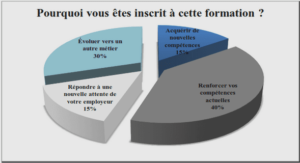Gender and the body in Charles Dickens’s novels of the 1980s
Gender rules in Victorian society
How English Victorian society oppressed women, and how that oppression is expressed in two classic works of literature: « Emma » by Jane Austen and « Jane Eyre » by Charlotte Bronte. How would you like it ladies if you were told that your only place in this world was in the home, or that as you were born a woman you were already given the career of marriage? There would be no way out of it, no hope of changing and becoming something new and exciting, you were stuck in this position and either you made the best of it or died trying to revolt. Women held no rights. They were forced to be robots, performing only for the men they had to seek marriage to. The only job that women were allowed to hold was that of motherhood, they were not allowed to speak unless spoken to A.Gender rules in Victorian society and certainly were not expected to have personal opinion. It was not until the start of the Women’s Liberation Movement in the late 1960’s and early 1970’s that the whole outlook on women changed. If it wasn’t for women such as: Susan B. Anthony, Elizabeth Cady Stanton and Harriet Tubman women would be living in a world revolving only around men. In this paper I am not going to be glorifying the heroes that I hold true to my womanhood, though I would like to, but I will be explaining and making known the mental torture a woman was put through during the Victorian Ages. A woman, during these times, was basically on earth for the following reasons: cleaning, cooking and bringing pleasure to their husbands. The guidelines of how to treat a woman were probably the same as the ones used on how to treat a servant or animal. In the writing of this paper it is important that I stress and teach the treatment of women during these times, and let you the reader understand the role they played. I have read two different novels that took place within the times I am describing and have learned about two diverse characters; they will give a background and personal feels as to how a woman perceived and reacted to the rule society threw at her. Firstly to understand the Victorian Society one needs to grasp the background and views of these times. Women were only there for men, and the most important aspect of that was marriage. From the time they were young they were set to be beautiful, because only the pretty girls got the richest man. The girls were groomed and basically put on show like a common day racehorse. In addition to being good-looking, a young girl was expected to be able to sing, play an instrument and speak French and Italian. They needed to be gentle, innocent and ignorant of their intellectual opinions. Women in the Victorian society were meant to be weak, helpless, fragile and unable to think for themselves. There only job was to make sure the home was comfortable for the children and the man of the house. Her one use to the world was to produce a large family and a neutral and calm family atmosphere. In those times the man was the moneymaker and the woman was there to keep the house clean and tranquil. Men also held no respect for their wives with the evidence being mistresses. Many men kept mistresses and in the end still expected their wives to be faithful even though they were cheating on them the whole time. It was a hypocritical aspect of the Victorian age; men were allowed and even praised for being unfaithful while women were ostracized for it.A woman could not hold property in her name, even if she inherited that property from her family it was still in sole possession of her husband. If a married couple had been separated for a period of time the woman had no rights to see her own children, and if a divorce was in affect the woman had no chance of acceptance in society again. Women were also expected of certain things according to their rank in the social class. For example, a woman in the wealthy upper class was supposed to read, sew, receive guests, write letters see to the servants and dress for the part as her husbands’ social representative (Fashion-Era- « A woman’s place »). A day in the life of a wealthy woman involved that of etiquette rules, which involved changing up to six times a day. There was a morning dress, walking dress, visiting dress, traveling dress, shooting dress, golf dress, seaside dress, concert dress, opera dress, dinner and ball dress (Fashion Era-« A woman’s place). All the different dresses were for the sole purpose of showing off the wealth of the man and the household. In the lower classes people were more concerned with where they would be getting their next meal, eating food such as rancid bacon, old meat and tainted cheese. The social aspect of the pressure on woman to be perfect and unheard was not of great importance to these people. A variety of rules were also written during the Victorian times, these compiled rules were placed together and labeled as etiquette books. They covered a wide range of topics, and each sex, male and female, had a separate book. These rules had to be followed by the women and men within the society or they would be viewed as complete outcasts. The following rules were the ones stated for the women they read as such: A lady should always walk in an easy, unassuming manner, neither looking left nor right. If anything in a store window attracted her attention, she may stop and examine it and then continue her walk. A lady does not giggle of whisper in public. Talking loudly is « inexcusable » at all times. She does not call her friends across the street or ask of their heath in a boisterous manner. When bowing on the street, the lady should merely incline her head gracefully ,never her body. She should also smile pleasantly.
Domestic Responsibilities
Regarding family life, men were still seen as the ones who gave commands, while the women obeyed them. This is shown when Mrs. Bennet is giving Mr. Bennet details about what took place at the ball. « Mr. Bennet protested against any description of finery. She was therefore obliged to seek another branch of the subject… » (Austen,13). As soon as Mr. Bennet told Mrs. Bennet that he no longer wished to hear about Mr. Bingley’s interactions with Jane at the ball, Mrs. Bennet changed the subject rather quickly to Mr. Darcy, as if she already knew what to do. Even though women were seen as the inferior gender, men still had many responsibilities pertaining to the household and family life. They had the legal obligation to provide for their families. When Mrs. Bennet first heard about Mr. Bingley she was ecstatic because she knew that he was « A single man of large fortune; four or five thousand a year » With that income she knew that he would be able to support one of her five daughters, which was very important in a man during the Victorian Era. Women who were given opportunities to work were not required to work, but the men in their families were. Men were also required to help out domestically, even if their wives were not working. These were the responsibilities that men could neither ignore nor avoid.
More Responsibility, Less Morals
Despite the fact that men had a significant amount of responsibilities, many of them began paying less attention to their morals. The thrill of gambling appealed to many men and as a result it cost them their wealth and in some extreme cases, their families. A prime example is Mr. Wickham. « …For it had just transpired that he had left gaming debts behind him to a very considerable amount » (Austen, 247). [5] Mr. Wickham gave into the temptation of gambling and he needed to understand that such an addiction could go as far as to tarnish a man’s reputation. Another instance was with the increase in prostitution. Many married men were becoming sexually active outside the household. Women noticed this occurring as a result of them getting sexually transmitted diseases from their husbands. This shocked many women, and thus brought about demands for men to stay faithful and outcries of disgust. Even with the many changes in society, the power and privileges were still mainly reserved for men, with few exceptions. The « Weaker » Sex During the Victorian Era, women were often thought to be the weaker sex, subservient to men. This idea can be seen throughout Pride and Prejudice. Mrs. Bennet was characterized as someone with a “weak understanding and illiberal mind” (Austen, 226). On the other hand, her husband, Mr. Bennet was portrayed as a competent and sarcastic man who was fond of reading. Mrs. Bennet was often teased by her husband, who found great pleasure in mocking her, sometimes without her knowledge. Elizabeth Bennet also touched upon the idea of the inferiority of women during a conversation with Mr. Darcy and Miss Bingley. After hearing what defined an accomplished women, “‘…a thorough knowledge of music, singing, drawing, dancing, all the modern languages…’” (Austen, 44), Lizzy declared that she had never seen such a woman. Even though Lizzy did not particularly fit the mold of a typical Victorian woman, she was intelligent and spoke her mind, she could not help but think that a woman was incapable of being what Mr. Darcy and Miss Bingley considered accomplished.
ACKNOWLEDGMENTS |



